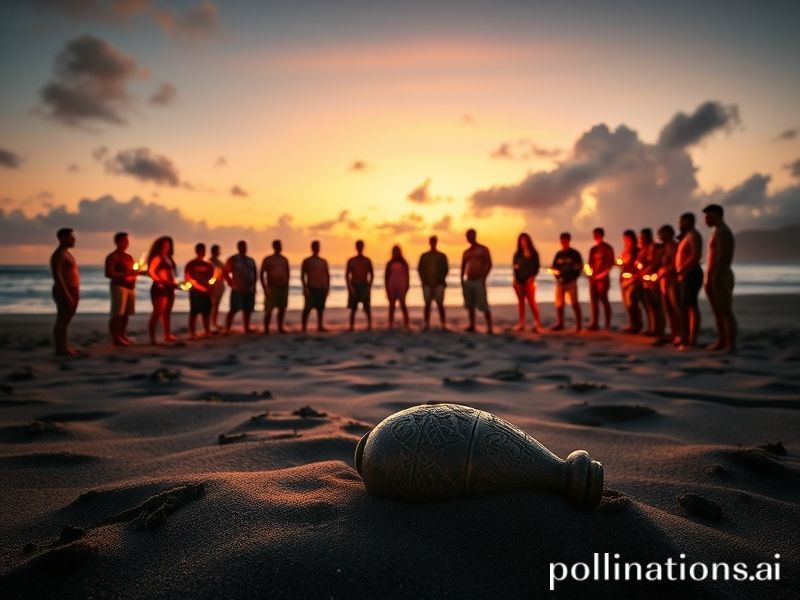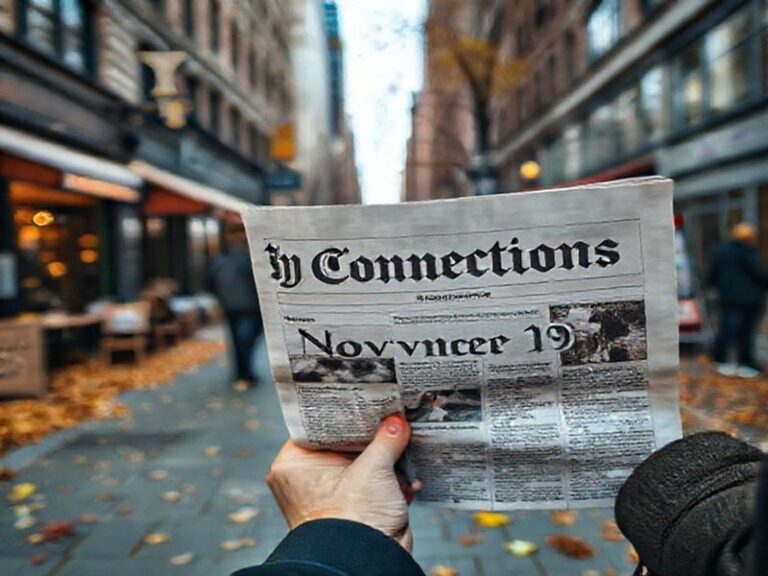Survivor 49: How a Reality Show Became the UN’s Most-Watched Briefing
SURVIVOR 49: THE WORLD’S MOST RELIABLE DIPLOMATIC CHANNEL, NOW IN ULTRA-HD
Somewhere over the South Pacific, a customs agent in Nadi is stamping the 47th passport of a contestant who claims her profession is “influencer–slash–crypto-visionary.” She’s heading to a Fijian sand-spit so small it doesn’t appear on Google Earth unless you zoom in on the word “liability.” Welcome to Survivor Season 49, where the only thing thinner than the rice rations is the veneer of civilization—yet the show still draws more nightly eyeballs than the nightly news on five continents.
GLOBAL CONTEXT, OR HOW A GAME SHOW BECAME SOFT-POWER INFRASTRUCTURE
Last year the BBC devoted 14 minutes to the collapse of the Maldivian fisheries agreement; Survivor got 42. In the same week, Netflix released a docu-series about the Sahel drought; viewership flatlined next to Jeff Probst’s eyebrow arch. The takeaway? If you want geopolitics digested by the masses, hide it inside a coconut. Season 49’s location—rotated after Fiji politely threatened to raise its extortion, sorry, “filming fee”—is the contested islet of Tuvu-i-Lailai, claimed by both Tonga and a retired American dentist who insists he bought it on eBay in 2003. Production’s willingness to film on disputed real estate is either colonial nostalgia or the most honest climate-change commentary available: “In thirty years this beach won’t exist, so let’s monetize it now.”
WORLDWIDE IMPLICATIONS, OR WHY YOUR PENSION MIGHT BE IN A FIRE TOKEN
While alliances form over boiled hermit crab, the real action is in the currency markets. Every “fire token” minted on the show’s blockchain (yes, they went full crypto this season) is now being day-traded in Singapore. Analysts at Deutsche Bank have modeled the token against the yuan and concluded it’s “surprisingly resilient, assuming no contestant eats the ledger.” Meanwhile, El Salvador’s president has suggested adopting Survivor’s reward beads as legal tender—partly as a meme, mostly because the IMF already hates him.
THE CONTESTANT ROSTER: A UN OF PETTY GRUDGES
Casting has achieved what the Security Council cannot: proportional representation. There’s a Norwegian fisheries inspector who can fillet a tuna with a glance, a Brazilian supreme-court clerk who cites precedent during reward challenges, and a Ukrainian ex-tank commander whose idea of “a relaxing getaway” involves less shelling than usual. Naturally, the first tribal council devolved into a debate on carbon credits—subtitles helpfully rendered in six languages, including despair.
HUMAN NATURE, LIVE AND IN SURROUND SOUND
The immunity idol this season is carved from reclaimed ocean plastic, which sounds virtuous until you realize production flew it in on a separate jet “for insurance reasons.” Contestants weep over the symbolism, then immediately scheme to bury it where sea turtles can’t judge them. It’s the perfect metaphor for COP summits: everyone applauds the gesture, nobody wants it in their backyard.
EPISODE 3’S TWIST—TRADE A TRIBEMATE FOR RICE—PROVOKED ACTUAL DIPLOMATIC NOTES
Canada lodged a formal complaint when its national, a kindergarten teacher from Saskatoon, was bartered to the opposing tribe for two scoops of rice and an unused tarp. Ottawa called it “a violation of human dignity.” The producers issued a correction: it was three scoops.
CONCLUSION: THE WORLD IS THE ISLAND
Survivor 49 succeeds because it compresses the planet’s neuroses into 39 days and one sunburnt jury pool. Climate anxiety, supply-chain shortages, crypto delirium, performative activism—it’s all there, wrapped in a sponsored buff. When the winner (spoiler: the dentist’s paralegal) finally torches the final immunity idol, viewers across 183 countries will feel the same guilty relief: someone else, somewhere else, has briefly outrun the rising tide. And if the tide swallows Tuvu-i-Lailai next monsoon season? Well, Season 50 is already scouting Greenland. Melting ice means fewer bugs, Probst notes cheerfully.
Somewhere, a glacier files a cease-and-desist.







